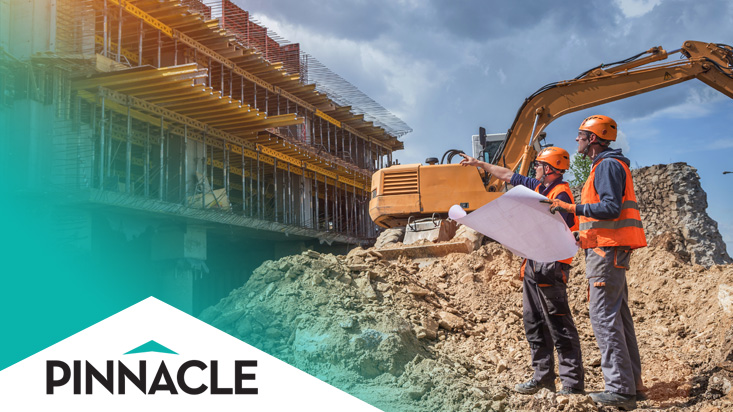Do You Really Need A Maintenance Bond For Your Construction Project?
When your construction firm has been awarded the contract for a new building project, your chief objective is to complete the job to your client’s specifications while generating healthy profits for your business in the process. In truth, protecting yourself from a financial perspective should be one of the critical items on your agenda. There are many items that you may encounter while researching the different possibilities and maintenance bonds for construction are likely to be one of the most prominent.
Before committing to this type of surety bond, however, you need to know whether it’s a worthy investment or a waste of time and money. So, let’s take a closer look at their purpose, cost, and other vital attributes.
Why Do You Need Financial Insurance In The First Place?
 Whatever type of construction project is required, your business naturally wants to complete the work at the lowest possible price without compromising on the quality. After all, this is the best way to maximize your profit margins while additionally providing the clients with a fair and competitive quote.
Whatever type of construction project is required, your business naturally wants to complete the work at the lowest possible price without compromising on the quality. After all, this is the best way to maximize your profit margins while additionally providing the clients with a fair and competitive quote.
The pursuit of profit, combined with the fact that there is a strong possibility that the project will be completed without a hitch, means that you may believe it’s possible to get by without taking that financial insurance.
Nevertheless, there’s always a chance that mistakes will occur. Those problems could develop at any stage of the project, which is why you may think about performance bonds, off-site material bonds, and other legal assurances. Ultimately, the company relies heavily on the work of its employees as well as the tools and materials that may be provided by others.
Frankly, the fact that unforeseen circumstances or mistakes during construction could potentially cost the company, especially if it is deemed liable and at fault for the problems encountered during the project. With this in mind, it’s imperative that you take those precautions. Otherwise, you could leave yourself open to a commercial nightmare.
However, it’s not just about the work before and during construction. You also need to consider the condition of the site following its completion; that’s why maintenance bonds for construction companies are crucial.
Why It’s Important For The Client Relationship
As with all business matters, it’s important to put yourself in the shoes of the client. They may have contacted several contractors about the possibility of hiring them for the project. Therefore, you need to go the extra mile to make a winning impression.
Having a maintenance bond in place, along with the other insurances and financial preparations will show the client that you are serious about ensuring they get the best results even if one of your employees makes a mistake. This emotional reassurance, combined with the confidence they’ll gain after reading the testimonials and seeing examples of your work, can make all the difference.
Losing a contract due to ignoring the need for this maintenance bond is simply not a solution,
A Brief Look At Maintenance Bonds For Construction
 A maintenance bond, otherwise called a warranty bond, is a type of surety bond used to protect the owner of a completed construction project. This financial protection relates to faults in workmanship as well as inadequate materials and erroneous designs and developments. Essentially, they are to guarantee the quality of a contractor’s work.
A maintenance bond, otherwise called a warranty bond, is a type of surety bond used to protect the owner of a completed construction project. This financial protection relates to faults in workmanship as well as inadequate materials and erroneous designs and developments. Essentially, they are to guarantee the quality of a contractor’s work.
The bond itself is taken out by the contracting company. They are commonly needed for public projects including state and federal items while private constructions are usually at the owner’s discretion.
Claims are filed by the client rather than the construction firm. If the building shows signs due to any of the issues covered by this type of insurance, the owner contacts the surety who will then analyze the site. If they agree that the contractor’s work isn’t right, they will compensate the building owner using the funds. You, the contractor, will still need to repay the costs but it does prevent things from escalating and ensures a speedy recovery.
The bonds ensure that work has been completed in accordance with all building codes, construction regulations, and state rulings. Maintenance bonds for construction commonly last for a period of between 12 and 24 months, which is deemed an appropriate timeframe to associate any defects with poor work from the contractor. Other than the timeframe, all maintenance bonds for construction firms are the same.
At least in terms of the coverage.
Ingredients That Influence The Warranty Bond
 Maintenance bonds for construction businesses have to be approved by the surety, and there are many issues that could impact the premium. Credit scores are an important factor as all sureties want to know that the funds can be repaid too. However, Pinnacle Surety won’t rule out those with bad credit in the same way that many alternative providers do.
Maintenance bonds for construction businesses have to be approved by the surety, and there are many issues that could impact the premium. Credit scores are an important factor as all sureties want to know that the funds can be repaid too. However, Pinnacle Surety won’t rule out those with bad credit in the same way that many alternative providers do.
Nonetheless, those with a good credit score can take out a maintenance bond for as little as 1% of the total bond amount. Meanwhile, combining the maintenance bond with the performance bond can be a great way to reduce the overall expense too. By getting the best deal possible, you gain the right coverage and emotional assurance while still maintaining the best level of profit. Perhaps equally significant is the fact that avoiding the hassle of handling the complaint and the possible changes can give contractors the opportunity to carry on with other projects.
Of course, you should factor the cost of your bonds when pricing up the project. In the grand scheme of things, given that the contract could potentially be worth millions, this aspect is almost a drop in the ocean.
The Verdict
The success of your construction project isn’t determined solely by the appearance and function on the day of competition. Sustainability is an equally vital element for the sake of productivity, cost-efficiency, and safety. As well as protecting the client, it’ll go a long way in protecting you.
In short: getting maintenance bonds for construction projects is always advised. As they say, it’s better to be safe than sorry.


